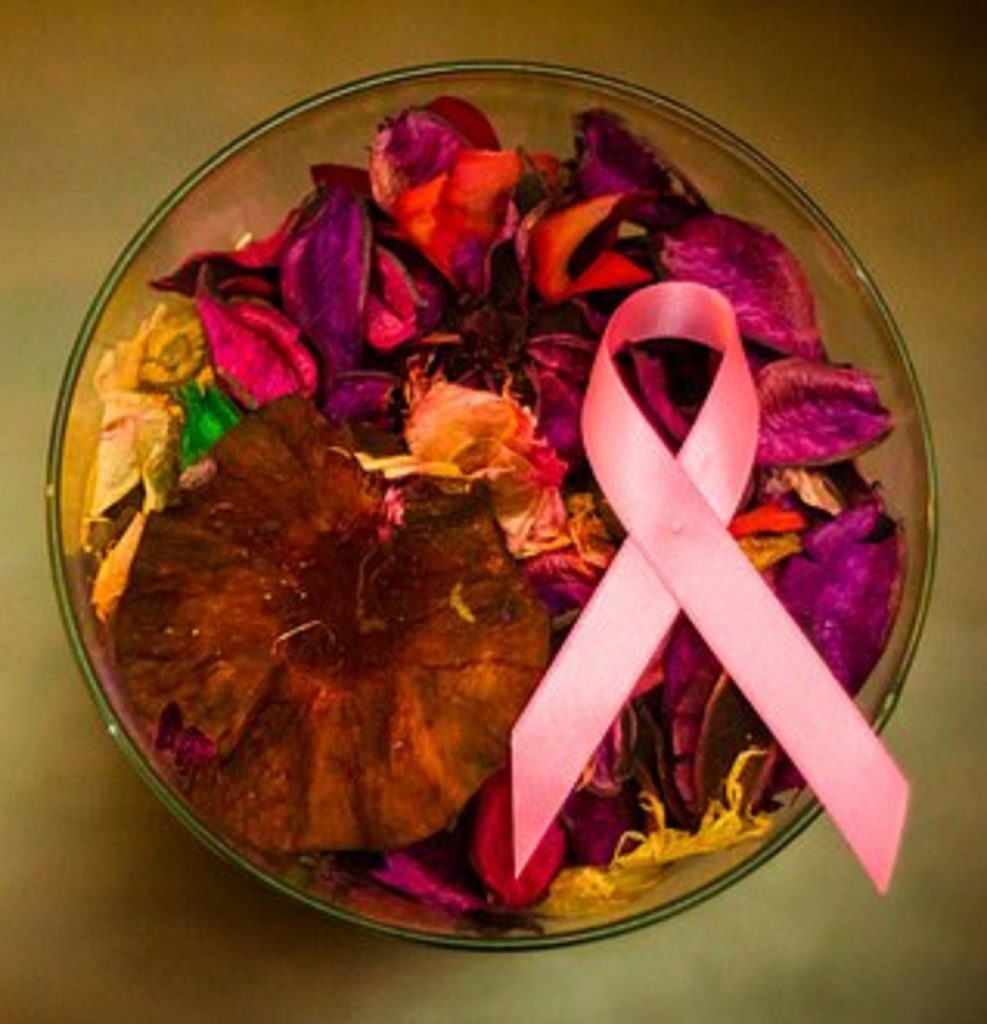October is Breast Cancer Awareness Month: “Supporting the Fighters. Admiring the Survivors. Honoring the Taken. And never ever giving up Hope.”
Many of us have been personally affected by breast cancer in one way or another. And most, if not all of us, are familiar with the pink ribbon which serves to remind women to be “breast cancer aware” for early detection. Breast cancer occurs mainly in women, however, men can get breast cancer as well. Many people do not realize that men have breast tissue and although rare, are also susceptible to the disease.
Earlier this year I met a male patient with breast cancer. He was diagnosed many years prior to our encounter but kept his disease from his family and never sought treatment. When I met him, he was in the hospital with end stage cancer that was now in his bones and his brain, and he had a fungating lesion to the affected breast. Fungating lesion is a type of skin ulcer caused by cancer that results in the death of living tissues and usually has a very bad smell. It was too late for my patient.
There is no sure way to prevent breast cancer but most doctors feel that early detection save thousands of lives every year. In the U.S., breast cancer is the second most common cancer in women after skin cancer, and while most women are aware of breast cancer, many of us forget to take the necessary steps to detect the disease in its early stages. Cells in nearly any part of your body can become cancerous, which may spread to other areas of your body.
Here’s what we can do:
- Practice breast self-exam (BSE) monthly and report any breast changes to a health professional right away. My doctor recommends doing the self-exam in the shower at the same time every month so that, over time with practice, it will become a habit.
- Women age 40 and older should have a mammogram every year and should continue to do so for as long as you’re in good health.
- Women in their 20s and 30s should have a clinical breast exam (CBE) as part of a periodic health physical at least every 3 years.
- Body weight, physical activity, and diet have all been linked to breast cancer, so these are areas where you can take action.
- MRI of the breast is recommended for women at high risk of breast cancer.
- Consider genetic testing for the BRCA genes if you have a strong family history of breast cancer.
Being diagnosed with any type of cancer is a life-changing experience. It can be hard to handle the news at first, and even harder to know how to proceed. While everyone’s journey is unique, knowing that others before you have been through something similar can give you the strength and inspiration you need to keep everything in perspective. The annual Breast Cancer Awareness Month is an international health campaign designed to increase awareness of the disease, provide support to and help raise funds further research.
“You gain strength, courage, and confidence by every experience in which you really stop to look fear in the face. You must do the thing which you think you cannot do” – Eleanor Roosevelt
Found value? Feel free to share!!
To Your Success,
Althea
Althea A. McLeish Wilson, RN, MSN
Promoting inner health & outer beauty!
Helping you thrive, not just survive!!
PS. Inner Health & Outer Beauty Store: Health & Wellness with Althea♦
PPS. Did You Find This Helpful? If so, please feel free to share!! Leave a comment or contact me at althea@altheamcleish.com.
Reference/Resource:
- Breast Cancer in Men – American Cancer Society♦
- Find Support Programs and Services in Your Area – American Cancer Society♦
- Breast Health – Aetna♦

